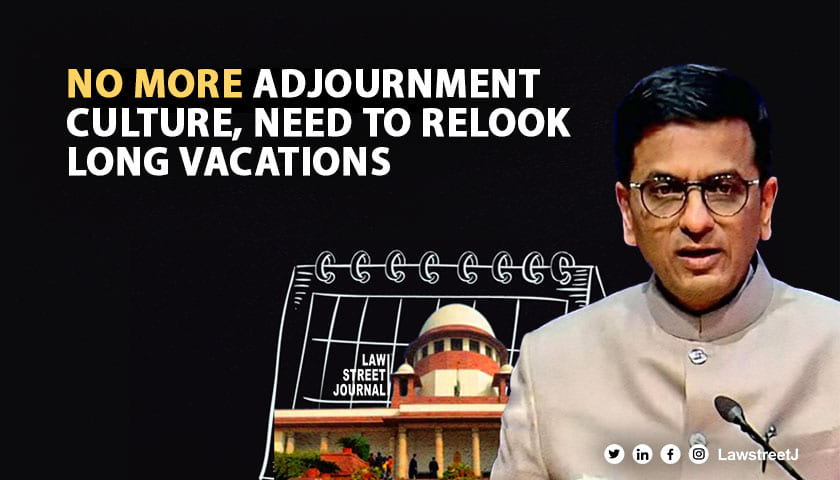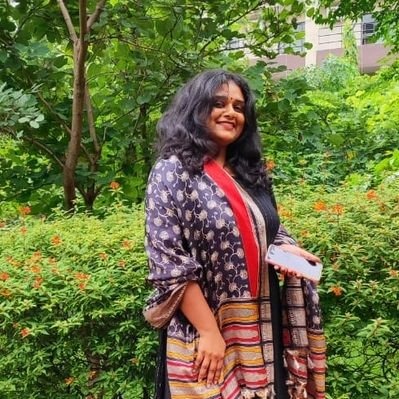NEW DELHI: Adjournment culture, long vacations, lengthy oral arguments, level playing field for new-laywers.
These were the key topics that the Chief Justice of India DY Chandrachud touched upon on January 28, speaking at the diamond jubilee celebrations of the apex court, marking the 75th year of the institution's establishment.
The CJI observed that four important topics pertaining the judiciary needed to be relooked at.
Our ability to remain relevant as an institution requires us to recognise challenges and begin difficult conversations:
First, we must emerge out of the adjournment culture to a culture of professionalism;
Second, we have to ensure that the length of oral arguments does not interminably delay judicial outcomes;
Third, the legal profession must provide a level playing field for first generation lawyers men, women and others from marginalised segments who have the will to work and the potential to succeed; and
Fourth, let us begin the conversation on long vacations and whether alternatives such as flexitime for lawyers and judges is possible.
It was further said that structural issues affecting the judiciary, such as pendency of cases, archaic procedures, and the culture of adjournments should be discussed. Ensuring dignity to the district judiciary, which is the first point of contact for citizens, was another point which was highlighted during the event.
Legal field not just for elite men now
CJI Chandrachud, during the address, underscored how the women lawyers constituted 36.3% of the working strength of the district judiciary. Traditionally, the legal profession was a profession of elite men. Times have changed. Women, traditionally underrepresented in the profession, now constitute 36.3% of the working strength of the district judiciary, the judge said.
Further, at the top court, 41% of the law clerkscum-research associates (appointed to assist the judges) are women.
The judge also pointed to how the Supreme Court designated 11 women coming from different parts of the country, as Senior Advocates at one selection.
With this, the Court also said how members Scheduled castes and scheduled tribes must be encouraged to join the legal profession.
Our legitimacy will endure from the inclusion of diverse sections of the population in our system. Therefore, we need to make more efforts to bring different sections of the society into the legal profession. For instance, the representation of Scheduled Castes and Scheduled Tribes is quite low both at the Bar as well as on the Bench.
Golden quadrangle of transformation
Together, e-filing, digitization, paperless Courts and e-office constitute the golden quadrangle of transformation, the CJI said while adding that this would uplift the experience of everyone who is either a part of the judicial system or who comes in contact with it.
The CJI also indicated that the top court would soon migrate its digital data to a safe, secure and sovereign cloud. This would be a shot in the arm for the I.T. setup of the Court. Cloud storage would ensure privacy, integrity, high availability, and secure accessibility of Supreme Courts domain data.
Additionally, a War Room equipped with technology that would enable the Supreme Court to monitor judicial data of the entire country in real time by using National Judicial Data Grid (NJDG) and iJuris, is in talks, the judge revealed.
New Initiatives
Another significant outcome of the event was the establishment of three citizen-centric information and technology initiatives targeted at modernizing the judicial system. Prime Minister Narendra Modi launched the Digital Supreme Court Reports (Digi SCR), Digital Courts 2.0, and the Supreme Court's new bilingual website to mark the diamond jubilee festivities. During this speech, the prime minister reaffirmed the government's commitment to using technology to improve the judicial infrastructure and provide justice for everyone.
Independence of judges'
Delivering his second address at the ceremonial bench of the Supreme Court to commemorate its inaugural sitting on January 28, 1950, the CJI spoke of the Constitution and the independence of judiciary. He said, "The Constitution entrenches several institutional safeguards for an independent judiciary. However, these constitutional safeguards are not in themselves sufficient to ensure an independent judiciary."
The CJI stated that an independent judiciary means not only working without interference from the administrative and legislative departments, but also the independence of individual judges in carrying out their duties as judges.
Former Supreme Court judges Justices AK Sikri, Sanjay Kishan Kaul and Ajay Rastogi, Chief Justices of all the High Courts, Solicitor General Tushar Mehta, Attorney General R Venkataramani and Supreme Court Bar Association president Dr Adish C Aggarwala were present for the occasion.















